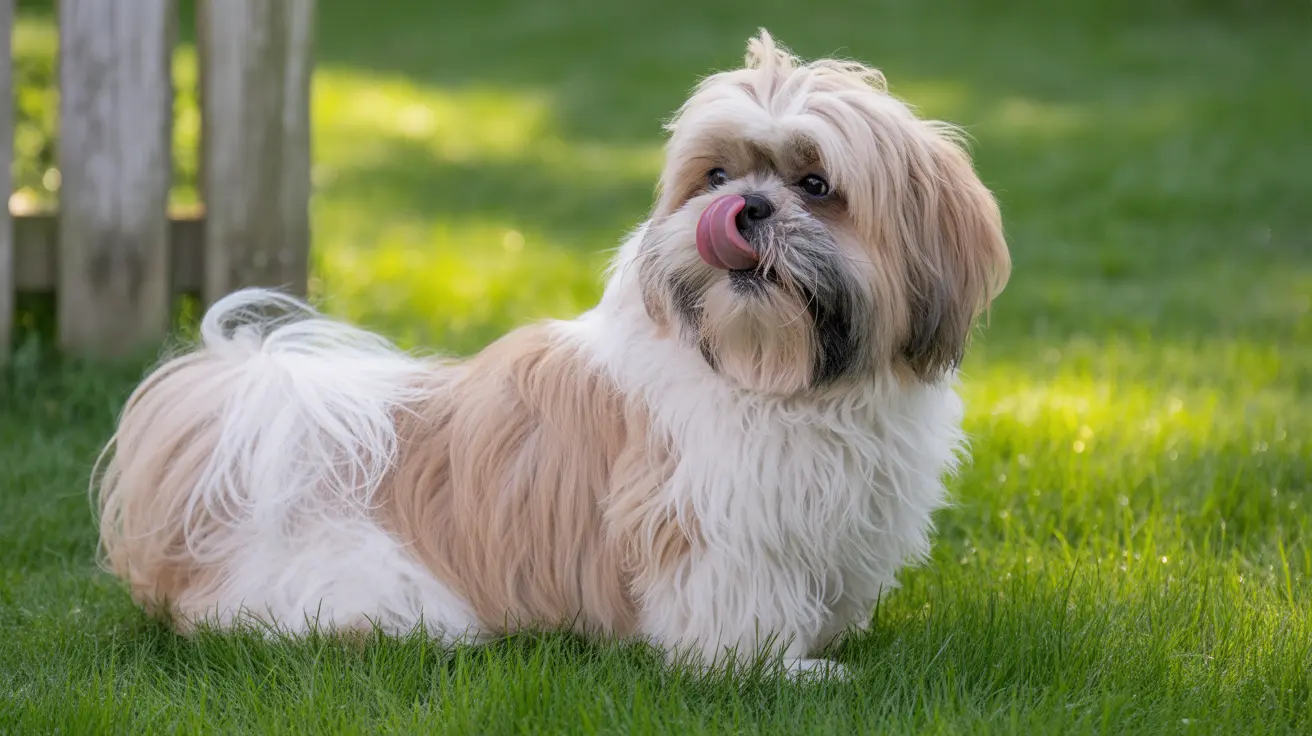If you've ever caught your dog engaged in what seems like excessive rear-end grooming, you're not alone. Dogs licking their butts is a common behavior that can range from normal self-cleaning to a sign of underlying health issues. Understanding why dogs engage in this behavior and recognizing when it becomes problematic is crucial for every pet owner.
In this comprehensive guide, we'll explore the various reasons behind this behavior, help you distinguish between normal grooming and potential health concerns, and provide practical solutions to address any underlying issues.
Normal Grooming vs. Problematic Behavior
Dogs naturally clean their anal area as part of their regular grooming routine. This behavior typically occurs briefly after defecation or during general grooming sessions. However, when licking becomes excessive, persistent, or is accompanied by other symptoms, it's time to pay closer attention.
Common Causes of Excessive Butt Licking
Anal Gland Issues
One of the most frequent reasons dogs excessively lick their rear end is problems with their anal glands. These small scent glands can become impacted, infected, or inflamed, causing significant discomfort. Signs of anal gland problems include scooting, frequent licking, and a distinct fishy odor.
Parasites and Intestinal Worms
Internal parasites can cause intense itching and irritation around the anal area. Common culprits include tapeworms, which may appear as small, rice-like segments around your dog's rear end, and other intestinal worms that can cause general discomfort and increased licking.
Allergies and Skin Irritation
Both food and environmental allergies can manifest as skin irritation around the anal area. This can lead to persistent licking as your dog tries to relieve the discomfort. Allergic reactions may also affect other parts of the body, such as the paws and ears.
When to Seek Veterinary Care
If your dog's butt-licking persists for more than a few days, or if you notice any of these warning signs, it's time to consult a veterinarian:
- Scooting or dragging the rear end
- Blood or discharge around the anal area
- Visible swelling or redness
- Changes in appetite or behavior
- Difficulty defecating
- Strong, unusual odors
Prevention and Home Care
While some causes of excessive butt-licking require veterinary intervention, there are several steps you can take to prevent problems:
- Maintain regular grooming schedules
- Ensure proper diet and hydration
- Keep your dog at a healthy weight
- Monitor for signs of allergies or sensitivities
- Practice regular parasite prevention
Frequently Asked Questions
Why do dogs lick their butts, and when should I be concerned about the behavior?
Dogs naturally lick their butts for grooming, but excessive licking that persists for more than a few days, or is accompanied by scooting, swelling, or obvious discomfort, requires veterinary attention. These symptoms often indicate underlying health issues like anal gland problems or parasites.
How can I prevent anal gland issues in my dog, and what are the signs of problems?
Prevent anal gland issues by maintaining a proper diet with adequate fiber, ensuring regular exercise, and maintaining a healthy weight. Signs of problems include scooting, excessive licking, a fishy odor, and visible swelling or redness around the anal area.
What are the common causes of excessive butt-licking in dogs, and how can I address them?
Common causes include anal gland issues, parasites, allergies, and skin infections. Address these by working with your veterinarian to identify the specific cause and following an appropriate treatment plan, which may include medication, dietary changes, or regular anal gland expression.
How can I determine if my dog is licking its butt due to allergies or parasites?
Look for additional symptoms: parasites may cause visible worms or segments in stool, while allergies often cause widespread itching, red skin, or ear infections. A veterinary examination and appropriate testing can provide a definitive diagnosis.
What are some home care tips to help prevent anal gland and skin issues in dogs?
Maintain regular grooming, provide a balanced diet rich in fiber, ensure proper hydration, keep your dog at a healthy weight, and use pet-safe cleaning products. Regular veterinary check-ups can help catch potential issues early.
Conclusion
While some butt-licking is normal for dogs, excessive attention to this area often signals a need for veterinary care. By understanding the various causes and recognizing warning signs, you can ensure your dog stays healthy and comfortable. Remember that early intervention is key to preventing more serious complications.






